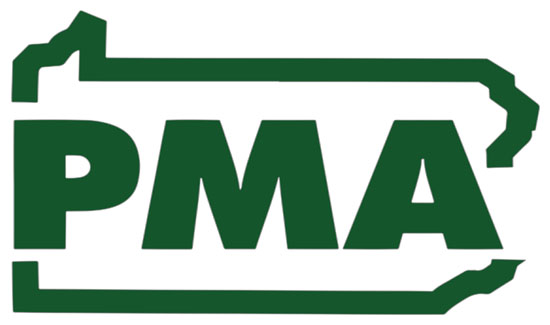Wolf’s Proposed Overtime Rules Would Harm Taxpayers, Employers

The Wolf Administration is pushing for a prohibitively costly change to overtime eligibility, similar to a move by the Obama Administration that a federal court rejected as blatantly disregarding both the letter and the spirit of the federal Fair Labor Standards Act (FLSA).
And the business community is not alone in warning of economic and societal wreckage from the proposed rule change from Wolf’s Department of Labor & Industry. Local governments and higher education would suffer increased costs under the plan. Worse yet, vital services for Pennsylvanians with the greatest needs, provided by publicly funded non-profits, would be strained as well.
“Governor Wolf’s overtime proposal is extreme, excessive, and likely to hurt the people he claims to help,” said PMA President & CEO David N. Taylor. “Employees who earned their way to full-time positions will find themselves back in hourly jobs. As ever, government mandates to increase wages don’t increase the amount of money employers have to pay people.”
The Pennsylvania Department of Labor & Industry’s overtime rule change is scheduled for a vote before the Independent Regulatory Review Commission (IRRC) on January 31. The proposed rule would nearly double the salary threshold of employees exempt from the FSLA time-and-a-half requirement from $23,600 to $45,000. The change would effectively nullify a key factor, established by Congress over 70 years ago, in determining those exempt from the rule: the duties that fall under a salaried job. In short, Congress never intended those in executive, administrative, or professional positions to be covered by the time-and-a half rule.
“The FLSA’s text makes it clear that it is not intended to cover all workers,” wrote the Competitive Enterprise Institute (CEI) in May 2017 comments to the U.S. Department of Labor, just months before a Texas court rejected the Obama increase in the salary threshold. “The statute contains numerous exemptions, many of which pertain to overtime requirements. There are nearly 50 full or partial exemptions from the FLSA’s overtime requirements.”
By raising the threshold so high, the Wolf proposal would likewise effectively eliminate the exemptions under the “duties test” of the law. That’s a no-go as per the Eastern Texas District Court ruling in August 2017.
The court found that, “because the final rule from the Obama Administration would exclude so many employees who perform exempt duties, the Department fails to carry out Congress’s unambiguous intent” of exempting those who perform executive, administrative, and professional duties.
Making matters worse, the Wolf proposal, as did Obama’s rule change, provides for automatic increases in the salary threshold.
“Since the Department of Labor is prohibited from setting the salary threshold at a level that supplants the duties test, it is imprudent to mechanically raise it every four years,” CEI said. “Although the Eastern Texas District Court decision did not put an exact numerical figure on when the salary threshold supplants the duties test, frequent updates could easily raise the salary threshold level to a point that is contrary with this ruling and intent of Congress.”
Charitable organizations would be particularly hard hit by the changes based on comments submitted back in 2016 to Obama’s Department of Labor, according to a sampling provided by the U.S. Chamber of Commerce:
- The Salvation Army expected that approximately 50 percent or more of its employees nationally who were currently classified as “exempt” would be reclassified as non-exempt purely based on their salaries;
- The YMCA expected layoffs or a reduction in hours for reclassified employees;
- Operation Smile expected an increased payroll cost of nearly $1 million annually affecting over 50 percent of their workforce, which is a programmatic cost that would result in more than 4,000 cleft lip surgeries going unperformed;
- Lutheran Services expected a 9.1 percent unfunded increase in its budget nationally.
A new overtime rule approved under the Trump Administration that raises the salary threshold from $23,6000 to $35,500 became effective January 1. It’s a change that CEI called a “far more reasonable, affordable approach to the overtime mandate, compared to the now-defunct Obama-era rule.”
Nearly all states, including Pennsylvania, follow the FLSA salary threshold in determining exemptions. But differences in the laws still create confusion, which will only increase under the proposed Wolf Administration change as the Pennsylvania Chamber of Business and Industry notes in November comments to IRRC:
The Department [of Labor & Industry] may have the authority to increase the salary threshold beyond the salary threshold and thereby put Pennsylvania employers at a competitive disadvantage, but doing so is clearly in conflict with existing federal statutes. Additionally, Pennsylvania overtime laws and regulations have failed to keep up with changes that have occurred over the decades to the Fair Labor Standards Act. This, combined with a number of court decisions, has created a conflict between federal and state law in which employers are unable to follow federal law, even if Pennsylvania law is silent on some particular matter.
Finally, the change will result in employers, forced to mitigate increased costs under the change, switching salaried employees to workers clocking in at 40 hours or less a week – the hourly range where the overtime rule doesn’t apply. The potential is very real that salaried employees will lose out when they are demoted to hourly work with less flexibility, fewer benefits, and ultimately lower wages. The very people this rule is intended to help could be hurt.
Earlier this week, the House Labor and Industry Committee approved a resolution opposing the proposed rule change. The full House and Senate could approve similar resolutions if IRRC approves Wolf’s proposed rule. But the governor has the authority to veto the resolutions, and the rule could go through as drafted if approved by the IRRC




